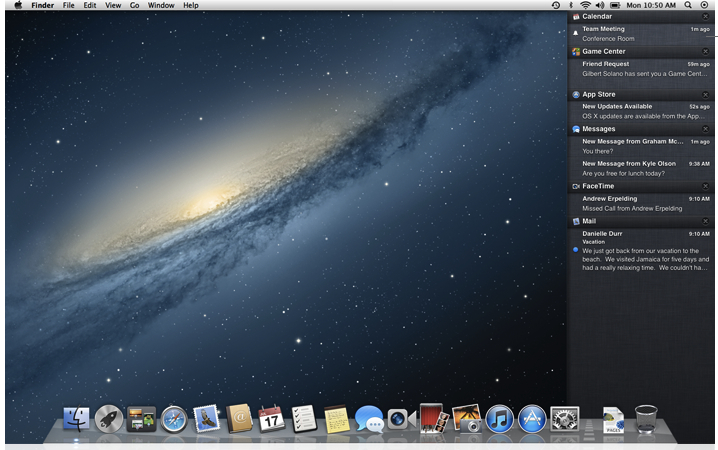
Why should I, a Windows user, care about Mountain Lion anyway?
As it has been widely reported today, Apple released its latest desktop operating system, OS X 10.8 (Mountain Lion) to the public. The operating system costs just $20 to download through the Mac app store, and is available to all current Mac users running OS X 10.6 or higher.
But you are a Windows user with no intention of switching over to Mac OS. If you bought a Mac you'd, probably boot Windows on it. You really have no place for Mountain Lion in your heart or mind, so what could anyone possibly say about it that would make you nod your head in agreement that a feature is cool or signifies one trend or another?
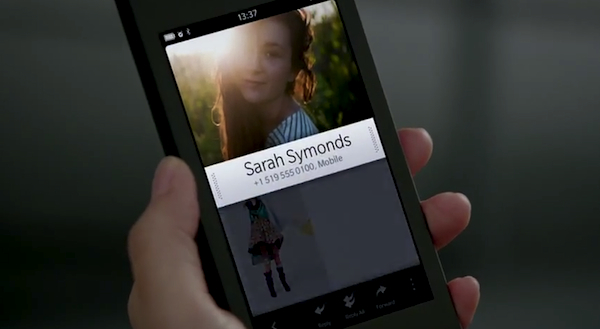
Research in Motion isn't in a 'death spiral'
The conjured term "death spiral" has been so overused in discussions about Blackberry-maker Research in Motion that one must ask: Are the tech pundits crying wolf too often, too soon? Do a targeted search for "Research in Motion death" on Google and you will easily see that this rush to judgement started all the way back in early 2010. Like the doomsday naysayers of yesteryear, RIM's date of decease has anything but solidified (to some pundits' shock.)
The short-term future for RIM is a rocky road indeed. With its face-saving Blackberry 10 OS release being pushed back another quarter into early 2013, the smartphone giant has little glitz to match the other big boys temporarily. Samsung's instant-hit -- aka the Galaxy S3 -- has already touched down. Google's got its latest iteration of Android, Jelly Bean, cooking for its flagship devices including the Nexus and the S3. And the iPhone 5 rumor mill just can't take a week off as of late.
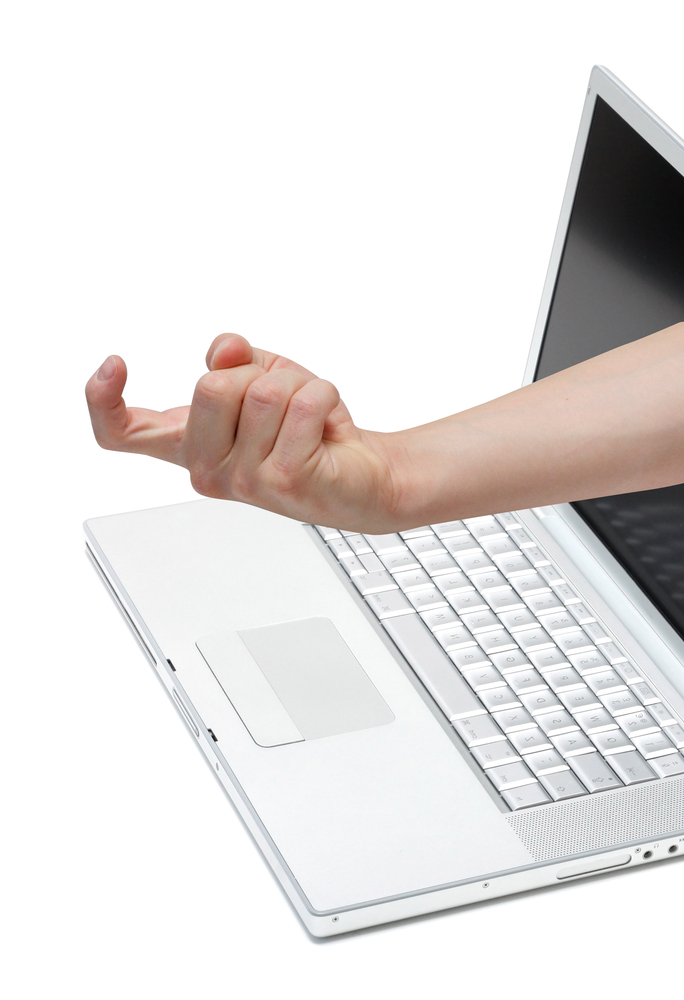
Scam sites lure victims with fake YouTube-to-mp3 converters
Want to access the music tracks of YouTube.com videos on your iPod but don’t want to pay? You’re not alone. Recently, a crop of websites have popped up offering to convert the audio from videos to .mp3 files that you can then download at no charge. Sounds great, right? The catch: scammers are trying to capture the popular click traffic and redirect users to scam websites, where you might get more than you bargained for, in the form of free malware and other unpleasantness as a bonus.
Recently, we hosted a “cyber boot camp”, teaching high school students to attack and defend networks. One of our presenters, John Moffat, who often delivers security awareness seminars to teenagers and stresses the dangers of the “free” Internet, referenced this scam in his presentation. While Mr. Moffat doesn’t claim to be a malware expert, he knows a scam when he sees one, and does his best to help others avoid falling prey.

Is 99 cents too much to pay for an Android game?
Soon after colleague Randall C. Kennedy wrote that "Piracy is killing Android", developer Madfinger Games complained that incredibly high piracy rate on Android devices is why Dead Trigger is free on Google Play, while 99 cents on Apple’s App Store. Is iOS better than Android in this regard?
After an initial price of “as little as buck”, some game developers are going free, due to the piracy rate that plagues the Android world. Madfinger Games hasn’t provided any statistic as to how many of their game installs account for pirated copies, but according to Google Play numbers their installs are in-between 100,000 to 500,000, with an exponential increase at the end of the last 30 days. The game has been free since July 20, so in just four days its popularity skyrocketed. Does this mean a high piracy rate or just the plain “it’s free, I’ll take it” thinking?
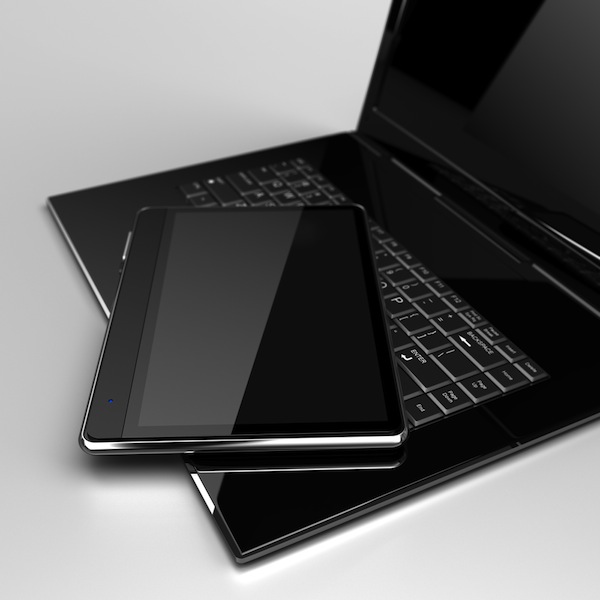
You can't do real work on a tablet
Whenever I think about tablets v. PCs, I remember a bold prediction of old: “Son, 10 years from now everyone will drive an electric car!” When was that, 20 years ago? We’ve all read something like that from someone believing to be clairvoyant.
I read similar articles almost every day where the writer plays the same old broken record: tablets are the death of PCs, or some other flamboyant thing that’s bound to get interest -- with the hope that the reader will agree with the author. It's like almost everyone is set on sending the PC down to the gates of Hell. But why should I agree with their assertions when I actually need a PC?
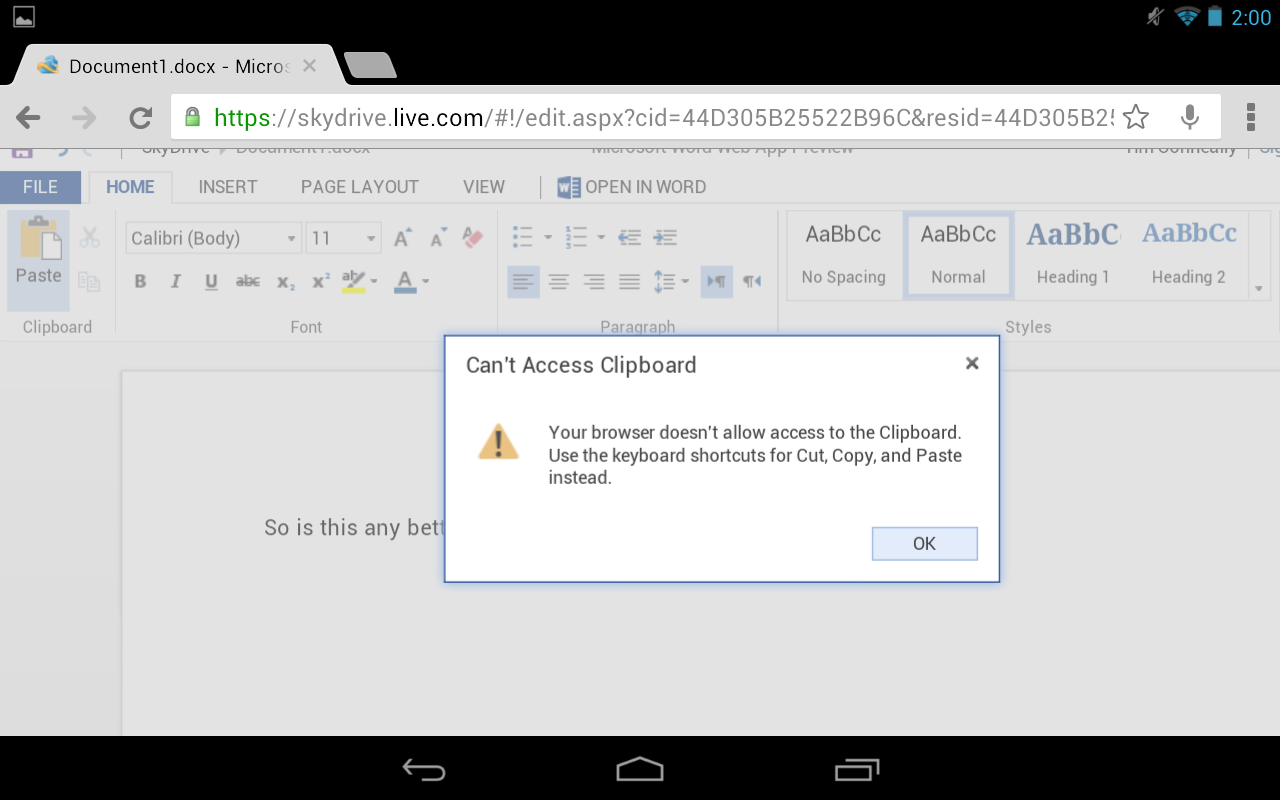
Microsoft's new Office Web Apps: More mobile, but not mobile enough
For just about three years, we've had Microsoft's browser-based suite of free Office tools alongside the desktop Office software. In that time, we've composed and edited loads of Word documents, created Powerpoint presentations, and manipulated Excel spreadsheets. But when these types of Web apps debuted, there were three great islands: the standalone desktop software, the Web-based service, and the mobile application. Each was meant to be used in a different context, and each was equipped with different capabilities to suit those contexts.
For Microsoft in 2010, the PC was still the reigning king, so the Office Web apps were meant to get Office documents off the hard drive and out where they could be easily shared and passed between PCs.

8 things Marissa Mayer needs to do at Yahoo NOW
Pundits can't seem to glow enough about Yahoo's new CEO, who has been on the job for less than a week. Marissa Mayer is a Google darling flown the coop and swooped in just as Yahoo shocked shareholders with another quarter of disappointing performance.
It's get to work time, and we've got a to-do list for Mayer -- eight things she should do as soon as humanly possible.
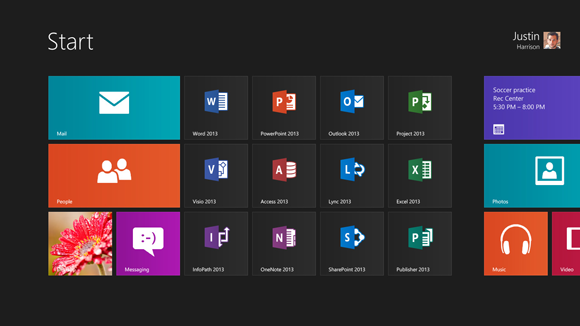
A (p)review of Microsoft Office 2013
Microsoft released the preview version of Office 2013 less than a week ago. This new installment of the productivity suite has many of the same features as its previous versions, 2003, 2007, and 2010: Word, Excel, Access, PowerPoint, and Outlook. But there are other programs as well, and Microsoft has connected the Office Suite to the Azure Cloud.
In this review I’ll discuss the requirements for installation and the installation process. I’ll also discuss the contents of three of the Office 2013 suite programs, Word, Excel and PowerPoint, and how the cloud-based Office 365 may change the way many users work with the suite. I’ll also talk about Windows 8 integration, and wrap up with a discussion about the impact that Office 2013 can have in business enterprises.
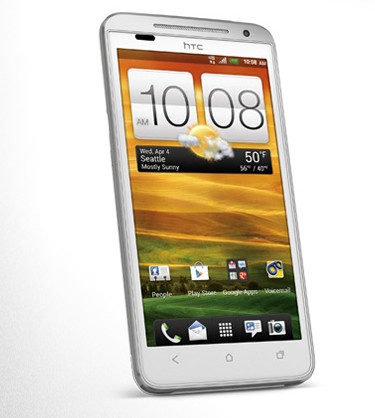
HTC EVO 4G LTE review
With the roll over to LTE from WIMAX, Sprint has taken the path to have Android 4.x on all its new 4G Android devices, the first being the Google flagship Galaxy Nexus. But one of the first third-party LTE Androids is the update to the HTC EVO line. The original HTC EVO 4G became the top-selling launch-day phone on Sprint back in 2010. Minor updates to the line followed, such as the EVO 3D, as well as a Star Wars-branded White R2D2 model. So how does the new HTC EVO 4G LTE, an Ice Cream Sandwich (Android 4.0.3) using HTC Sense 4.0 UI stack up to the family title in 2012?
The EVO 4G LTE is only 0.35 inches thick, compared to the 0.5 inches of its predecessor, with a form factor of 5.3 inches by 2.7 inches. The screen is a sharp 4.7-inch Capacitive Super-LCD 2 -- 312 dots per inch with 720 x 1280 pixel resolution at 24-bit (16.7 million) color. To watch HD video is a joy; its easy and fair to say it is impressively crystal clear.
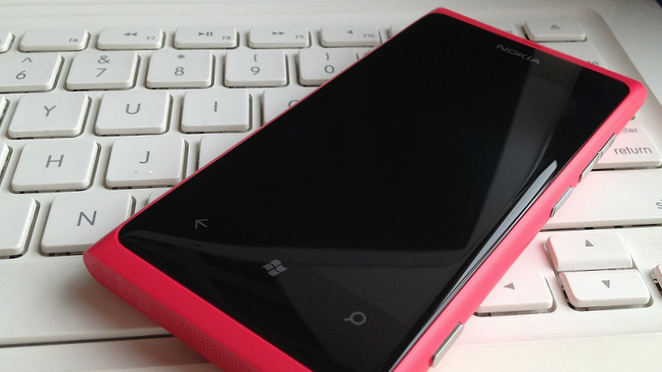
Nokia and Windows Phone are misfits
Some relationships aren't meant to be. That's how I felt about Microsoft and Nokia when they announced their partnership in February 2011. You've seen some of my missives: "Nokia does the Windows Phone death dance" (April), "Windows Phone can't save Nokia" (February) and "Windows Phone transition is killing Nokia" (July 2011), among others. Let's not forget the memorable "Windows Phone 7 Series is a lost cause", from February 2010.
The problem is simple: Microsoft's usage philosophy around Windows Phone is fundamentally flawed and doesn't jive well at all with Nokia's enormous install base. As such, Nokia should never have cut the deal with Microsoft that replaced Symbian with Windows Phone. Symbian was the most widely used mobile operating system in the world when the companies cut the deal -- and in many geographies where Nokia remains market share leader, it still is. Seventeen months ago, new CEO Stephen Elop should have fretted more about holding onto existing customers -- how to move them to new Nokia handsets -- rather than compete with iPhone. The ex-Microsoft president doomed Nokia, instead.

Well done Microsoft for bringing Office closer to the cloud
One of the areas of this week's Office 2013 launch that received slightly less attention as the updated Office Web Apps. These are the light weight web counterparts of the ‘full fat’ desktop applications, and are Microsoft's answer to Google Docs. Existing users of Skydrive, Office 365, or SharePoint 2010 will be familiar with them.
The apps received various updates, some major and many minor. Most obvious is the Metro look and feel, in line with everything else you have seen of Office 2013. Excel gains the ability to insert forms, PowerPoint sees its rendering engine markedly improved, and OneNote doesn’t seem to get anything other than a lick of paint. All in all its an incremental improvement, and certainly nothing to make happy Google Docs users sit up and take notice.

BYOD apocalypse deniers suffer from post-PC depression
It’s a form of denial. In my recent post on the Office team dissing Windows 8, I noted how the lack of full touch support in Office 2013 undermines Microsoft’s efforts to break into the Post-PC space. And while I expected some push back from the Redmond choir, I was surprised at how many readers seem to be having a hard time accepting the reality of the Post-PC phenomenon.
Simply put, the PC as a technology driver is dead. Yet some people -- most notably, IT professionals who fear the coming BYOD apocalypse -- are determined to prop-up the corpse, slap some lipstick on those rotting lips and pretend that it’s still 2009.
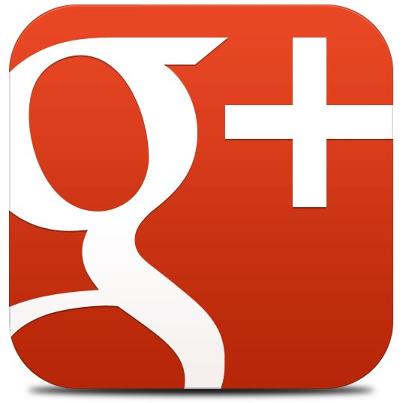
Google+ wins me over
“Bigger is always better” is an expression we’ve become accustomed to over the years and while counter-intuitive it best describes everything that’s wrong with Facebook. The most popular social networking website is the best example of size losing over quality. Are we really satisfied with our Internet alter-ego living in the largest environment or the better one?
The American Customer Satisfaction Index has revealed rather interesting user satisfaction results on Facebook and Google+. Satisfaction is the word of the day and Facebook users don’t really get it, which is curious because there are more than 900 million of them. The satisfaction index rating decreased from 66 in 2011 to 61 in 2012. That's out of 100 points. Surely CEO Mark Zuckerberg should be concerned. Why? The sun shines brighter on Google+, which ranks 78 its first time on the index, equal to Wikipedia.
People don’t like Facebook, They like their Friends

Which Firefox is right for you -- 14, 15, 16 or 17?
The recent release of Firefox 14 FINAL means the whole developmental cycle has moved on again, and as expected versions 15 (Beta), 16 (Aurora) and 17 (Nightly/UX) of Mozilla’s web browser have made their first appearances. Version 14 was a relatively minor release after the excitement of version 13, but versions 15 and 16 both promise some exciting new features as we reveal below.
Get a head’s up on what’s coming and discover which build is best for your personal needs with our updated guide to what the future holds in store for Firefox.
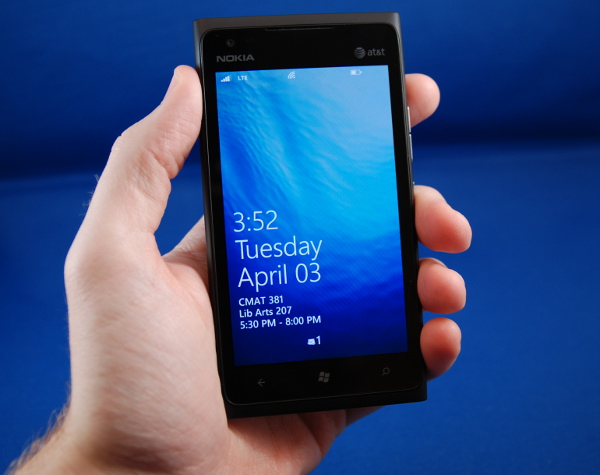
Why isn't Windows Phone more successful?
As Nokia reports its earnings, I can’t help but feel bad for the company's efforts here in the United States. To me, 600,000 units in North America (and supposedly that includes other devices besides Lumia 900) is not exactly what I would call a win.
But that’s just me. I’m a Windows Phone user. It’s a fantastic platform. The interface is gorgeous, and the OS is fast. I haven’t had issues with Windows Phone that I have had with Android. So in my opinion, the platform deserves a spot at the table with Android and iOS. So why hasn’t it been very successful?
